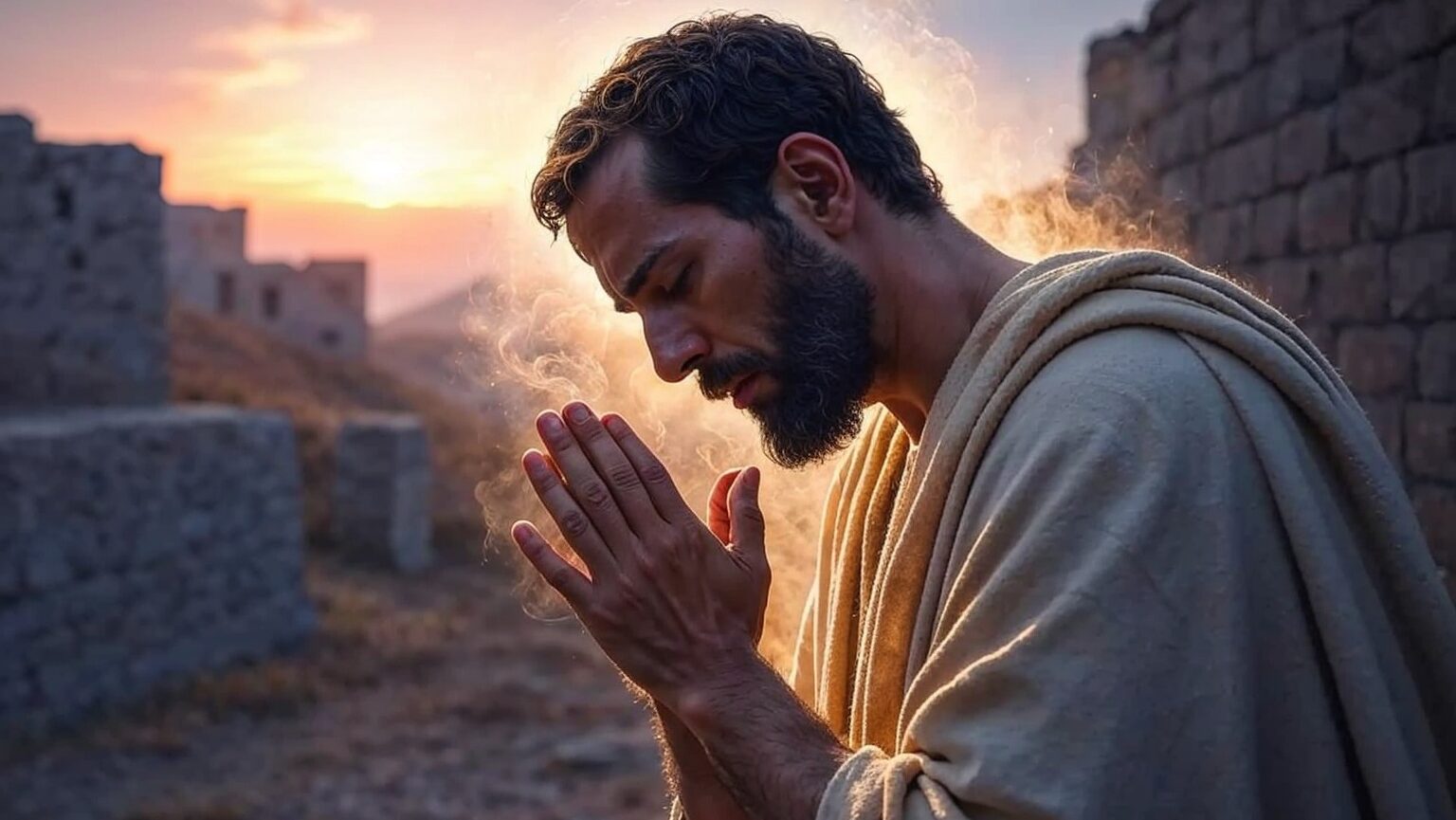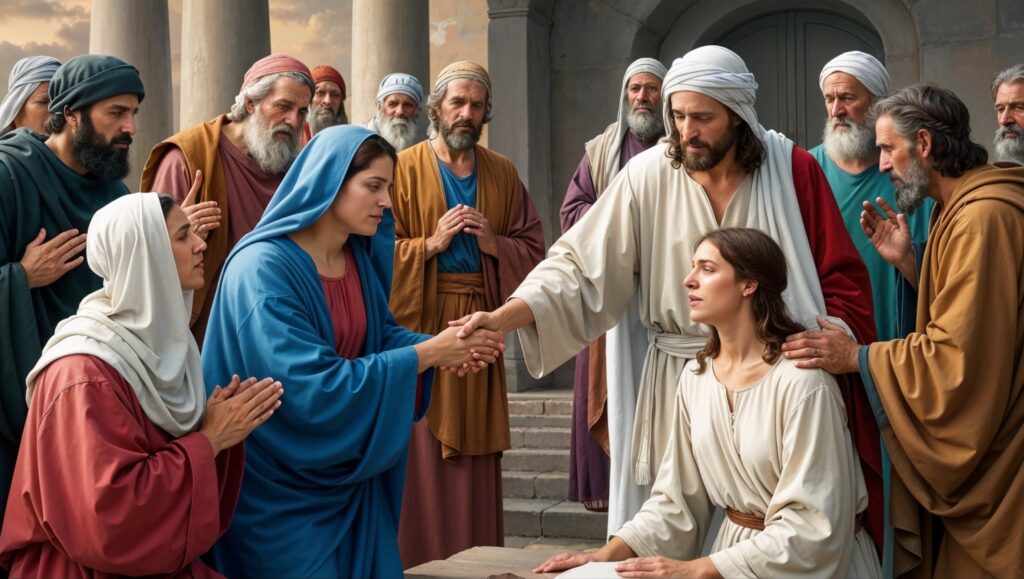Pain is a universal experience. It touches every life, often leaving us feeling broken, uncertain, and searching for meaning. Yet pain, while difficult, can also be transformative. As we reflect on Nehemiah’s story in Nehemiah 2:5, we uncover a powerful truth: pain does not have to paralyze us. Instead, it can become the very spark that ignites change and growth. With God’s guidance, our pain can be redeemed and used for a greater purpose—one that not only restores what was lost but also builds something stronger and more enduring.
Nehemiah 2:5 The New International Version
And I answered the king, “If it pleases the king and if your servant has found favor in his sight, let him send me to the city in Judah where my ancestors are buried so that I can rebuild it.
Nehemiah’s Pain and God’s Purpose
Nehemiah’s journey begins with heartbreak. When he learned of Jerusalem’s devastation—the walls reduced to rubble and the gates burned—his heart was deeply grieved. He didn’t suppress his emotions or try to distract himself from the pain. Instead, as Nehemiah 1:4 recounts, “When I heard these things, I sat down and wept. For some days I mourned and fasted and prayed before the God of heaven.” His response was not one of despair but of surrender. He brought his sorrow to God, trusting that even in his pain, there was a divine purpose.
This moment of grief became the foundation for Nehemiah’s mission. By the time we reach Nehemiah 2:5, we see a man transformed by prayer and faith. With boldness and humility, he asked King Artaxerxes for permission to return to Jerusalem and rebuild its walls. His pain over Jerusalem’s destruction was no longer just an emotion—it had become a calling. Through Nehemiah’s faithfulness, God turned his sorrow into action and his heartbreak into hope.
Pain as a Catalyst for Change
Like Nehemiah, we all encounter seasons of pain—whether through loss, failure, or unexpected challenges. These moments can feel overwhelming, even paralyzing. But Scripture reminds us that our pain is not wasted in God’s hands. Romans 8:28 assures us: “And we know that in all things God works for the good of those who love Him.” While pain itself is not good, God has the power to redeem it, transforming our suffering into something meaningful.
Pain often serves as a wake-up call—a moment that forces us to pause and reevaluate what truly matters. It can reveal areas in our lives that need healing or change, drawing us closer to God in the process. When we surrender our pain to Him, it becomes fertile ground for growth and transformation.
Steps to Transform Pain into Purpose
Turning pain into purpose is not an instant process; it requires faith, patience, and intentionality. Nehemiah’s journey offers us a roadmap for navigating this transformation:
- Acknowledge Your Pain: Healing begins with honesty. Like Nehemiah, take time to mourn your losses and bring your pain before God in prayer. Psalm 34:18 reminds us: “The Lord is close to the brokenhearted and saves those who are crushed in spirit.” Your pain matters to Him.
- Seek God’s Guidance: Before taking action, Nehemiah spent days fasting and praying (Nehemiah 1:4-11). Similarly, we must seek God’s wisdom through prayer and Scripture. Ask Him to reveal His purpose for your situation.
- Take Bold but Humble Action: When the time comes to act, step out in faith like Nehemiah did when he approached the king (Nehemiah 2:4-5). Trust that God will provide you with the courage and resources needed for the task ahead.
- Focus on Rebuilding: Whether it involves mending relationships, pursuing new opportunities, or deepening your faith, allow God to guide you as you rebuild what has been broken. Remember His promise in Isaiah 58:12: “You will be called Repairer of Broken Walls.”
- Use Your Experience to Help Others: As 2 Corinthians 1:4 reminds us: “[God] comforts us in all our troubles so that we can comfort those in any trouble with the comfort we ourselves receive from God.” Your journey through pain can become a source of encouragement for others walking similar paths.
God’s Promise of Restoration
One of the most beautiful truths about our faith is that God specializes in restoration. Just as He empowered Nehemiah to rebuild Jerusalem’s walls from ruins, He promises to restore our lives when we trust Him with our brokenness. Isaiah 61:3 speaks of His ability to give “a crown of beauty instead of ashes” and “a garment of praise instead of a spirit of despair.”
No matter how deep your pain or how shattered your circumstances may seem, nothing is beyond God’s ability to heal and renew. He doesn’t just patch up what is broken; He creates something entirely new—a work of grace that reflects His love and glory.
Pain Transformed by Grace
Consider how Jesus Himself transformed pain into purpose through His death on the cross. What appeared to be ultimate defeat became the greatest victory—the redemption of humanity through His resurrection. In Christ, we see the ultimate example of how suffering can lead to restoration and renewal.
As followers of Christ, we are invited into this same transformative process. When we place our trust in Him during seasons of pain, He works within us to bring about growth—not just for ourselves but also for those around us.
Reflection Questions
- What pain are you currently experiencing? How might God be calling you to bring this pain before Him in prayer?
- Are there areas in your life where you feel called to rebuild? What small steps can you take today toward restoration?
- How has God used past experiences of pain in your life to shape your character or help others?
Read More About This Devotional
Words of Wisdom: Rebuild: Finding Strength in the Rubble of Life
Quote of the Day: “Change begins within you; embrace it and transform your reality”
Closing Prayer
Heavenly Father, thank You for being close to us in our moments of pain. Help us trust You with our brokenness and believe in Your power to restore what has been lost. Like Nehemiah, give us courage to step out in faith and rebuild with hope and purpose. Use our struggles as testimonies of Your grace so that we may comfort others who are hurting. In Jesus’ name, Amen.
Your pain is not wasted—it is part of a greater story that God is writing in your life. Trust Him with every broken piece and watch as He transforms it into something beautiful beyond measure!
Scripture Reading for the Day
Genesis 32 The New International Version
Jacob Prepares to Meet Esau
Jacob also went on his way, and the angels of God met him. 2 When Jacob saw them, he said, “This is the camp of God!” So he named that place Mahanaim.
3 Jacob sent messengers ahead of him to his brother Esau in the land of Seir, the country of Edom. 4 He instructed them: “This is what you are to say to my lord Esau: ‘Your servant Jacob says, I have been staying with Laban and have remained there till now. 5 I have cattle and donkeys, sheep and goats, male and female servants. Now I am sending this message to my lord, that I may find favor in your eyes.’”
6 When the messengers returned to Jacob, they said, “We went to your brother Esau, and now he is coming to meet you, and four hundred men are with him.”
7 In great fear and distress Jacob divided the people who were with him into two groups, and the flocks and herds and camels as well. 8 He thought, “If Esau comes and attacks one group, the group that is left may escape.”
9 Then Jacob prayed, “O God of my father Abraham, God of my father Isaac, Lord, you who said to me, ‘Go back to your country and your relatives, and I will make you prosper,’ 10 I am unworthy of all the kindness and faithfulness you have shown your servant. I had only my staff when I crossed this Jordan, but now I have become two camps. 11 Save me, I pray, from the hand of my brother Esau, for I am afraid he will come and attack me, and also the mothers with their children. 12 But you have said, ‘I will surely make you prosper and will make your descendants like the sand of the sea, which cannot be counted.’”
13 He spent the night there, and from what he had with him he selected a gift for his brother Esau: 14 two hundred female goats and twenty male goats, two hundred ewes and twenty rams, 15 thirty female camels with their young, forty cows and ten bulls, and twenty female donkeys and ten male donkeys. 16 He put them in the care of his servants, each herd by itself, and said to his servants, “Go ahead of me, and keep some space between the herds.”
17 He instructed the one in the lead: “When my brother Esau meets you and asks, ‘Who do you belong to, and where are you going, and who owns all these animals in front of you?’ 18 then you are to say, ‘They belong to your servant Jacob. They are a gift sent to my lord Esau, and he is coming behind us.’”
19 He also instructed the second, the third and all the others who followed the herds: “You are to say the same thing to Esau when you meet him. 20 And be sure to say, ‘Your servant Jacob is coming behind us.’” For he thought, “I will pacify him with these gifts I am sending on ahead; later, when I see him, perhaps he will receive me.” 21 So Jacob’s gifts went on ahead of him, but he himself spent the night in the camp.
Jacob Wrestles With God
22 That night Jacob got up and took his two wives, his two female servants and his eleven sons and crossed the ford of the Jabbok. 23 After he had sent them across the stream, he sent over all his possessions. 24 So Jacob was left alone, and a man wrestled with him till daybreak. 25 When the man saw that he could not overpower him, he touched the socket of Jacob’s hip so that his hip was wrenched as he wrestled with the man. 26 Then the man said, “Let me go, for it is daybreak.”
But Jacob replied, “I will not let you go unless you bless me.”
27 The man asked him, “What is your name?”
“Jacob,” he answered.
28 Then the man said, “Your name will no longer be Jacob, but Israel, because you have struggled with God and with humans and have overcome.”
29 Jacob said, “Please tell me your name.”
But he replied, “Why do you ask my name?” Then he blessed him there.
30 So Jacob called the place Peniel, saying, “It is because I saw God face to face, and yet my life was spared.”
31 The sun rose above him as he passed Peniel, and he was limping because of his hip. 32 Therefore to this day the Israelites do not eat the tendon attached to the socket of the hip, because the socket of Jacob’s hip was touched near the tendon.



